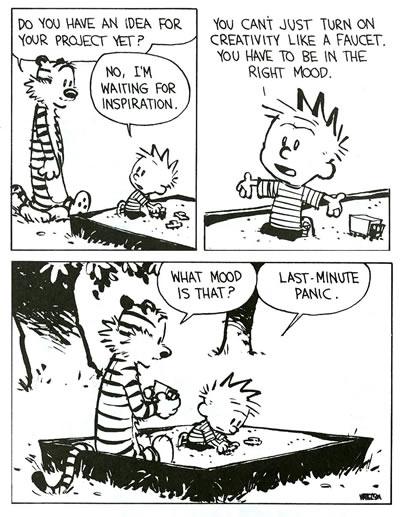So you want to write a book
 Thursday, December 29, 2011 at 06:17AM
Thursday, December 29, 2011 at 06:17AM Thanks to Miguel Guhlin's Around the Corner blog post, I found out that my new book can now be pre-ordered from Amazon (and it looks like at a pretty good discount.) I was told end of February was the expected publication date. Who knows?
My most sincere thanks to Miguel for the very kind comments he's made about the book (as have all the early reviewers). I am always humbled.
While I won't deny that I'll appreciate any royalties this book earns, I hope even more that it has a positive impact on teachers, schools and kids.

Unless you actually write a book (or are in a close relationship with a book author who grouches aloud), it's difficult to realize the amount of time that goes into such a project. Hey, slap a few word on the page, ship off the manuscript and just wait for the royalty checks to come rollin' in. Not quite.
Here, as I remember it, is a sort of general timeline I experienced completing my five commercially published books:
- Initial contact with the publisher. For most of my books, I've had the benefit of sitting down at lunch with a publisher representative at a conference. In some cases I initiated the contact; in others the publisher contacted me. Either way there is a verbal "pitch" about the need for the book and why you should be the one to write it. Takes about an hour.
- Formal book proposal. If the publisher and you are both interested, the next step is completing a formal, written book proposal. This includes author information, a proposed table of contents, a sample chapter, initial marketing information about target audience, and a survey of books that may be considered competition. Takes about six to eight hours to complete this.
- The contract. If the proposal is accepted, a contract is sent out, spelling out deadlines, royalties, etc. Depending on how much negotiating and questioning you might have, devote a few hours to studying this.
- Writing the first draft. This is the biggie. The words have to get on the page or screen. A lot of my efforts here are taking pieces of blog posts, columns, articles and other materials I've already written. But even when writing a book "500 words at a time", selecting, organizing, updating and editing for tone, voice and currency takes time - no way around it. For two books, I've gone on a week-long writing retreat to a small hotel in a warm, but boring place so I could focus on just the first draft without distraction. Plan on 80-160 hours for this stage.
- Asking for endorsements. Once the first draft is readable and submitted, the publisher will ask you to solicit those one-line "blurb" endorsements. It's at this stage you have to remember the old saw, "If you can't take advantage of your friends, who can you take advantage of?" I do seriously appreciate those folks who are more than just professional acquaintances who are willing to put their own reputations on the line to offer kind words for the work. Time spent: six to eight hours.
 Obtaining permission for quoted materials. All my books contain quotes, graphs and other materials written by others. If you want to use your own previously published work, you may need to contact the original publisher unless you have a "first rights to publication" agreement. Yes, I was surprised too. Publishers are pretty anal about all this. Figure up to 10 hours.
Obtaining permission for quoted materials. All my books contain quotes, graphs and other materials written by others. If you want to use your own previously published work, you may need to contact the original publisher unless you have a "first rights to publication" agreement. Yes, I was surprised too. Publishers are pretty anal about all this. Figure up to 10 hours.- Major revisions based on first readers. The publisher will send the first draft to a few content experts who will then make major revision suggestions. Once the initial shock subsides, you realize these are pretty good suggestions but will require major changes. Hard to estimate the time spent here, but let's just say another 20 hours.
- Revision based on editorial comments. This book had probably 3-5 editorial "questions" regarding grammar, vocabulary and such on every damn page. (Of course, this is why most published authors sound smarter than they actually are.) 30 hours to go through the manuscript again, line by line, page by page. If you aren't getting sick of the text by now, you have a stronger stomach than I do.
- Follow-up editorial questions. Whew, all the questions answered. Not quite. At least a dozen or more will need clarification. Five hours.
- Layout questions. This is your first chance to see what the published pages will look like and to make sure headings, bullet points, numbered lists, graphics, and call-outs make sense. This is another time suck. Figure 20 hours to add your comments.
- Review of final layout. Very, very last chance to see if the layout artists actually understood your comments and made the right changes to the final pages. Five hours and severe nausea.
- Sending complimentary copies to those who helped and your mother. While authors get a few complimentary copies, I always order 20 so additional copies to send to friends and colleagues. I make sure my mom and my boss get a copy. Autographing, stuffing and mailing take about three hours.
Figure about 230-250 hours of actual time-on-task* and 18 months between the time of conception and birth of a book. I have also self-published a book (Machines Are the Easy Part; People Are the Hard Part) using a vanity press. They suggested using a free-lance professional editor and I took their advice and am glad I did. Just as a doctor who treats himself has a fool for a patient, a writer who edits his own work is an idiot. I forget to run spelli-check on my blog posts half the time.
A few other things to remember for would-be authors. Most royalties are pegged at 15% of the price the book is actually sold for. Despite having nothing to say about it, you will be blamed for the book's price tag. Don't expect many visitors at conference book signings (at least compared to children's book authors.) Paparazzi ought not to be a big problem.
But - and this is important - if you have a story to tell, if you have experiences to share or lessons to teach, if you have a message to spread, if you are on a mission to change the world for the better, hell, even if you are motivated by somebody saying you can't do it - write your book.
* You can easily double this amount of time if you have children living with you.









Reader Comments (4)
I live with a writer.
'Nuff said.
Awesome. I just pre-ordered it and will do a review on Educating Zombies. Congrats, Doug. I know how much work is involved.
I think it took Stephen King 5 years to write "IT." I never knew clowns were that complex. Classrooms must be a lot easier.
Hi Bob,
Wow - and King has had a lot more practice than I have. I'm not sure I ever read IT. The last King I read was about a cell phone signal that turned people into zombies. Not a bad beach read.
Oh, zombies sell better than professional books. Maybe a combination: The Zombie Guide to Educational Technology and Libraries. Don't steal my idea!
Doug